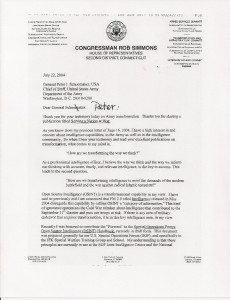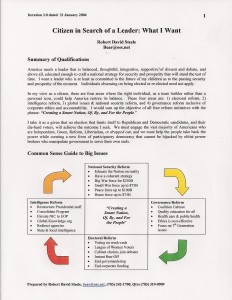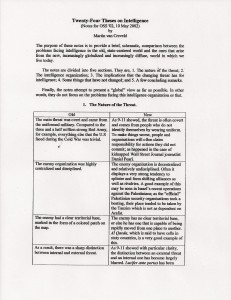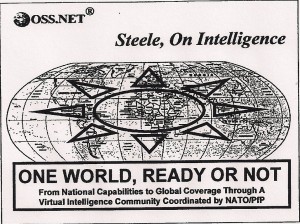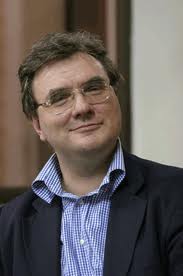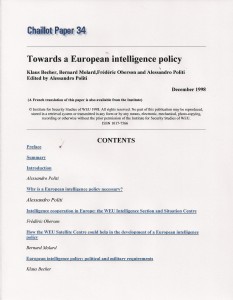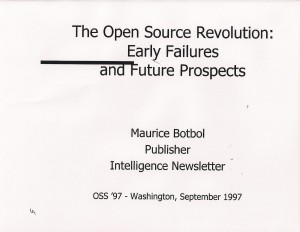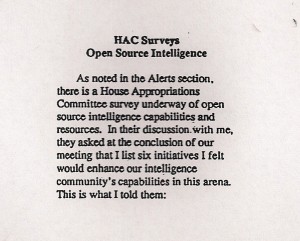General Schoomaker and Congressman Rob Simmons understood each other. The letter below, from Congressman Simmons to General Schoomaker, was intended to give General Schoomaker an opportunity to instruct LtGen Keith Alexander, then Assistant Chief of Staff for Intelligence , as to his duties. A change in Army doctrine resulted, and separate Open Source Intelligence (OSINT)doctrine was developed, but developed very badly. The Army G-2 mafia never took OSINT serioiusly as a separate discipline, and together with the Foreign Broadcast Information Service (FBIS) never growing past its broadcast monitoring role, was a severe impediment to progress in this arena. LtGen Alexander, today the Director of the National Security Agency (NSA) understood how to use OSINT in support of ABLE DANGER and in support of NSA missions, but he never understood the urgency of making OSINT a discipline in its own right that could be used to support all of the Army's mission areas, Whole of Government inter-agency planning, programming, and campaign execution, and even less so, coalition and multinational multifunctional operations with Non-Governmental Organizations (NGO), such as the Defense Advanced Programs Agency (DARPA) has consistently supported with its annual STRONG ANGEL exercise.
When Congressman Simmons lost by 80 votes in 2006, in large part because two newspapers in his District did not do their homeword and turned against him for not having “big ideas”–nothing could have been further from the truth–the Army G-2 mafia immediately down-graded OSINT, relegating it to contractors who know nothing of OSINT and refuse to sub-contract experts who do. With the exception of the OSINT unit at the US Special Operations Command, Army OSINT is totally hosed today, and much in need of a G-2 that understands both “full-spectrum” HUMINT and “full-spectrum” OSINT. They have no bench from which to find such a person.
